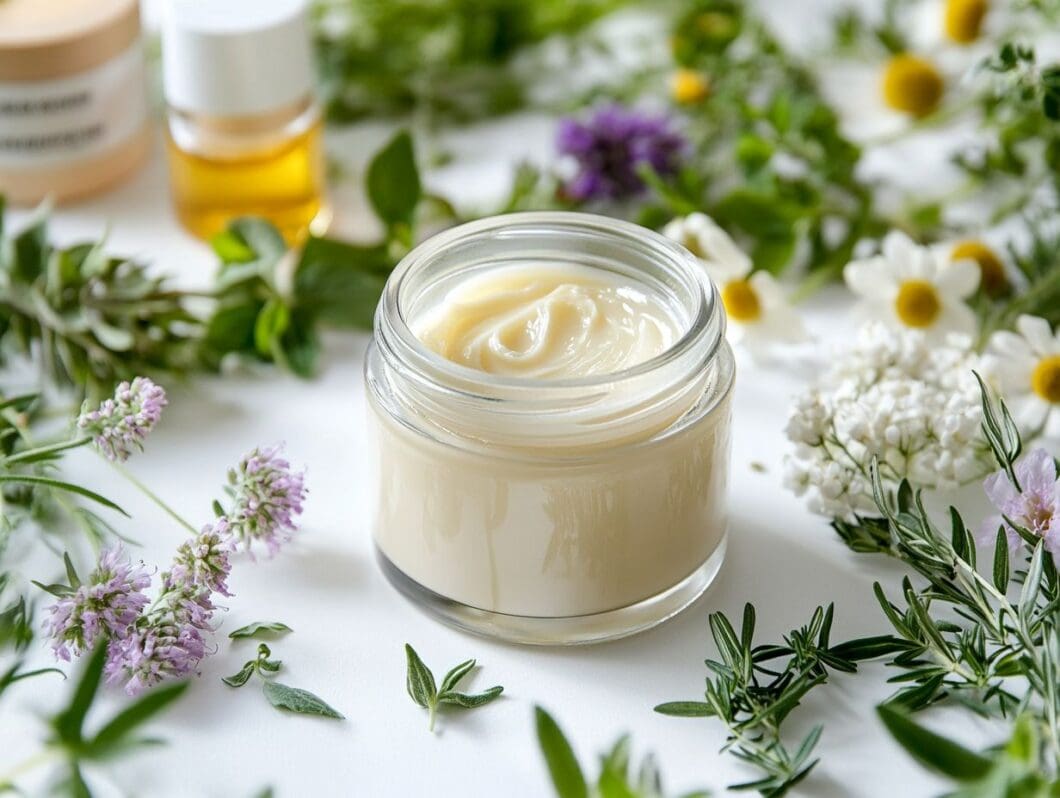In recent years, the buzz around probiotics has extended beyond gut health, making its way into skincare.
Are these tiny microorganisms truly beneficial for our skin, or is it just another beauty trend?
This article explores the role of probiotics in skincare, from understanding the microbiome’s impact on our skin to the potential benefits and drawbacks of using probiotic products.
We provide tips on choosing the right products and consider the pros and cons of DIY options.
Join us as we uncover whether probiotics are the future of skincare or simply a passing fad.
Key Takeaways:
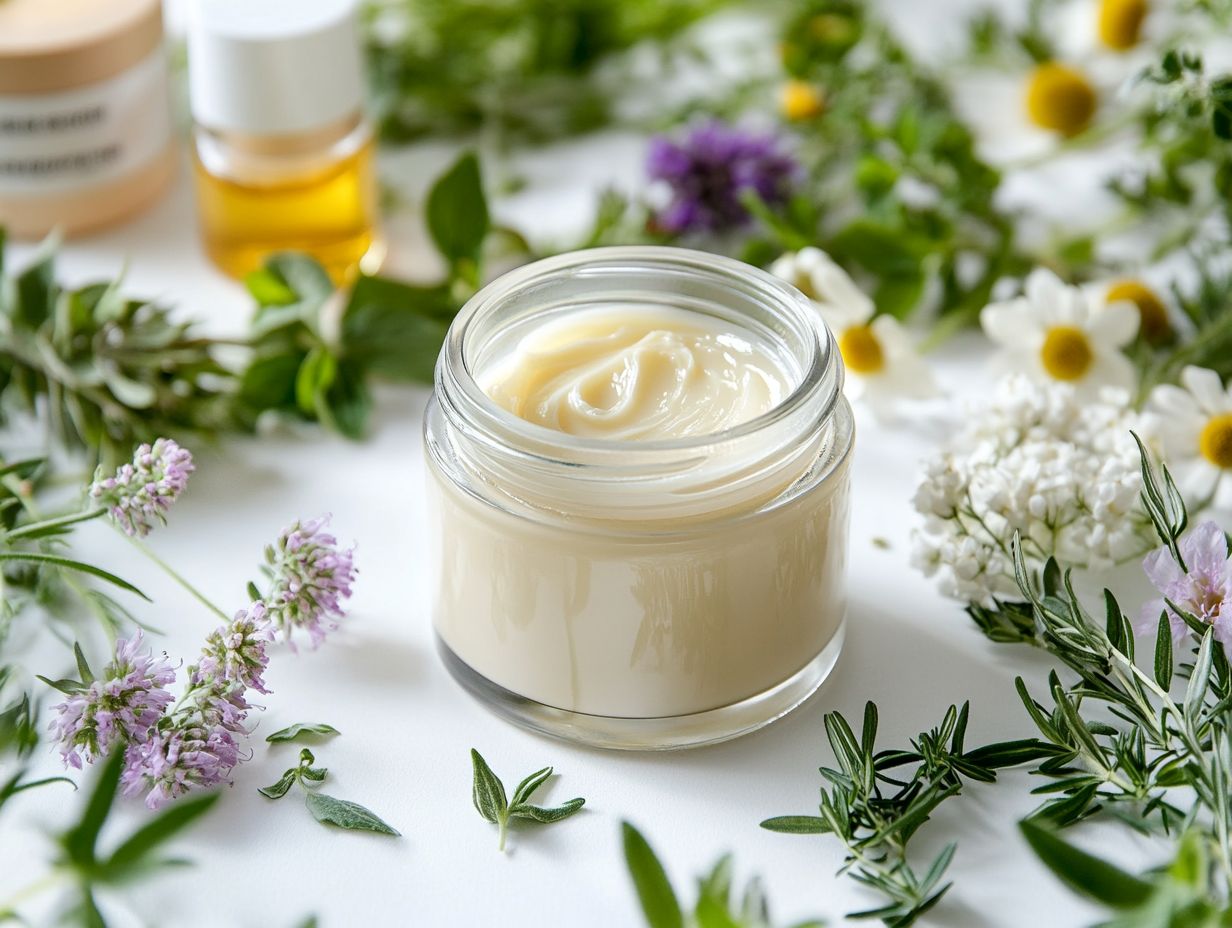
The Role of Probiotics in Skincare
Probiotics are integral to skincare, as they significantly enhance the health of the skin microbiome, which is essential for achieving optimal skin health and appearance.
The incorporation of probiotics into beauty products has gained considerable attention in the 2020s, largely due to the insights of experts such as Dr. Roshini Raj and Dr. Will Bulsiewicz, who underscore the relationship between gut health and skin health. This method not only encourages well-being through topical applications but also aligns with holistic health practices that prioritize the overall health of the body.
Understanding the Microbiome
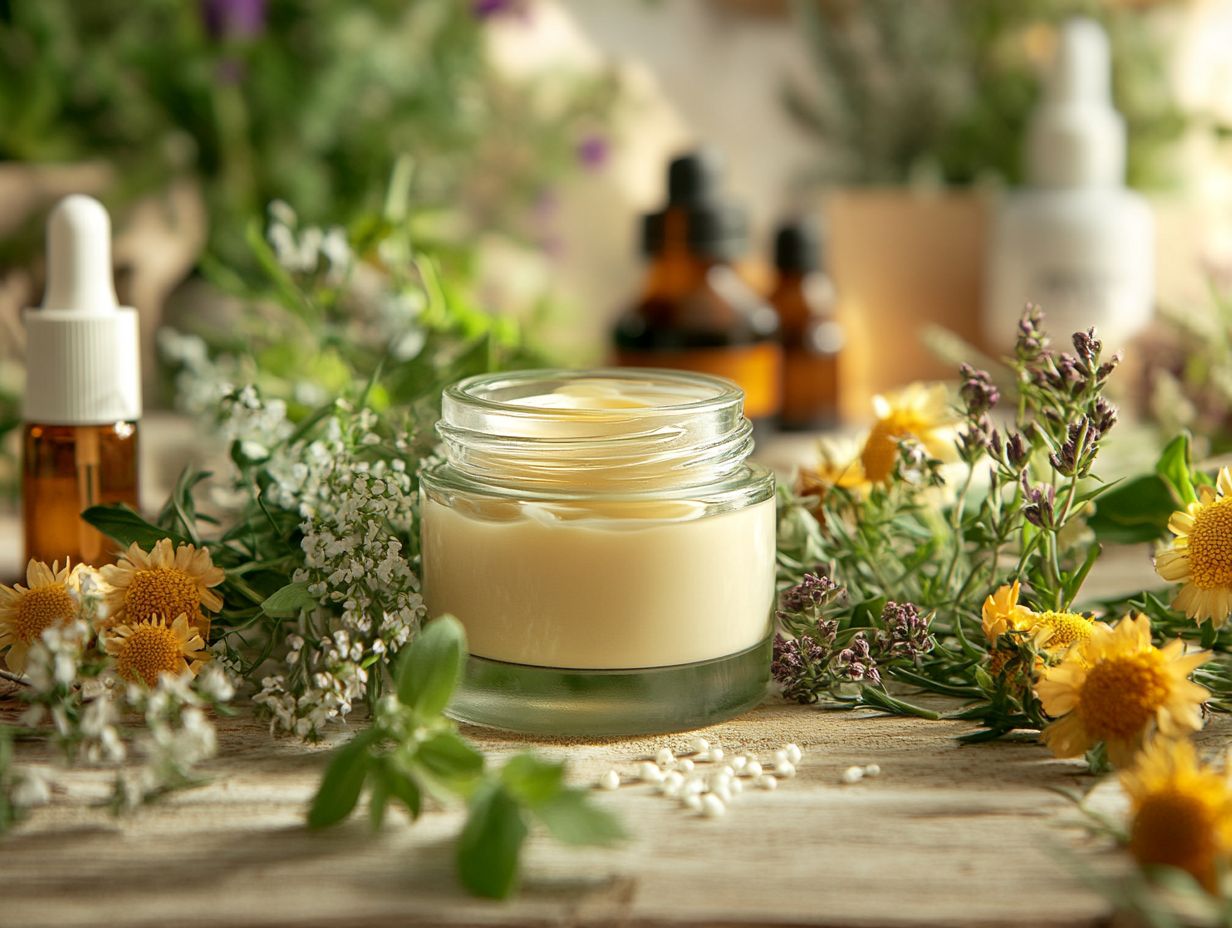
The microbiome, consisting of trillions of microorganisms, is present in various forms throughout the human body, including the gut and skin microbiomes, and plays a fundamental role in overall health.
These diverse communities of bacteria, fungi, and viruses are essential for digestion, immune function, and skin protection. The gut microbiome, in particular, significantly influences skin health by regulating inflammation and the body’s natural defenses. A balanced microbiome in both the gut and on the skin is crucial, as any imbalance may result in various skin conditions, such as eczema or acne.
Probiotics, commonly found in fermented foods, assist in maintaining this balance by introducing beneficial bacteria that support these ecosystems. By fostering harmony between the gut and skin microbiomes, individuals can enhance their skin health and overall vitality.
Benefits of Probiotics in Skincare
Probiotics present numerous advantages for skincare, significantly contributing to skin health and appearance.
They provide immune support, enhance hydration, and help combat inflammation.
Improving Skin Health and Appearance
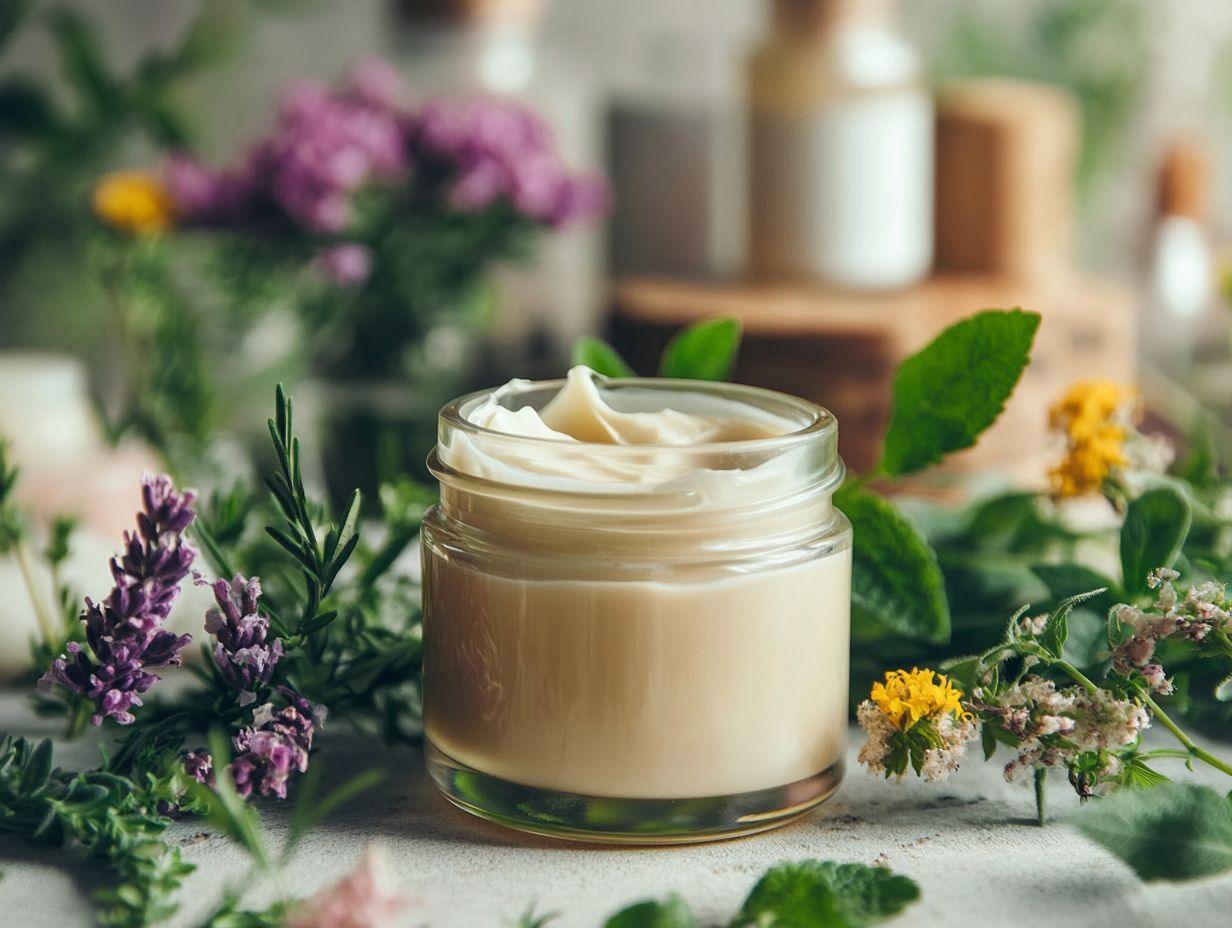
The incorporation of probiotics in skincare products can lead to substantial enhancements in skin health and overall appearance by maintaining a balanced skin microbiome.
Research indicates that specific strains of probiotics, such as Lactobacillus rhamnosus, can effectively hydrate dry skin by reinforcing the skin’s barrier function. A study published in the Journal of Investigative Dermatology revealed that participants using a probiotic-rich cream experienced a significant reduction in acne lesions, underscoring the relationship between a well-balanced microbiome and diminished inflammation.
Products like Estee Lauder’s Micro Essence Skin Activating Treatment Lotion feature probiotic ingredients that have received acclaim for their ability to combat signs of aging by enhancing skin elasticity and radiance.
Integrating probiotics into skincare regimens presents a comprehensive approach to addressing a variety of skin conditions.
Potential Drawbacks of Probiotic Skincare
Probiotics are widely recognized for their benefits in skincare; however, it is essential to carefully consider potential drawbacks, including side effects and allergic reactions, prior to their incorporation into beauty routines.
Possible Side Effects and Allergies
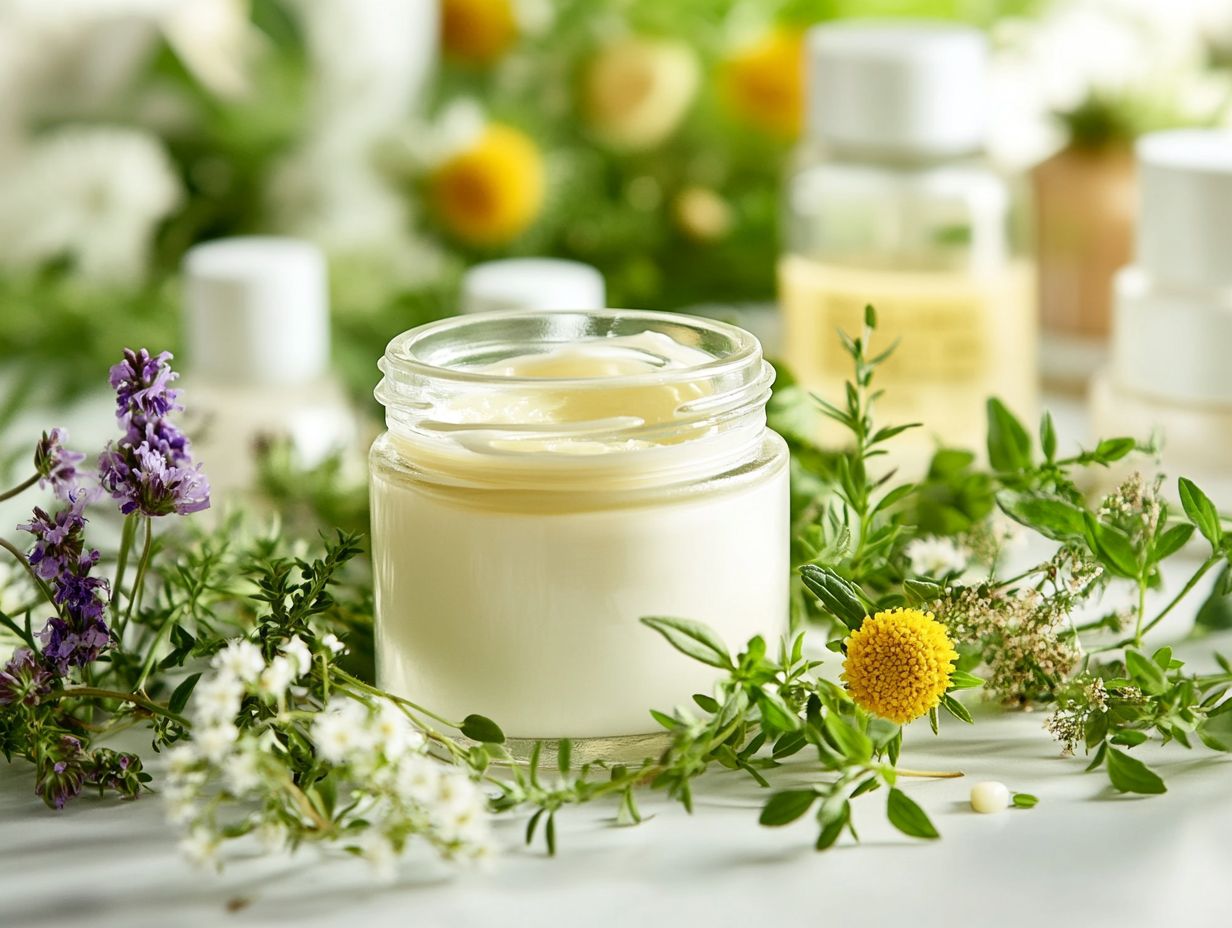
Possible side effects of probiotic skincare may range from mild irritation to allergic reactions, highlighting the importance of conducting patch tests prior to widespread application.
Users should remain vigilant, as these reactions can present as redness, itching, or, in some instances, swelling. It is important to recognize that individual skin types vary significantly; thus, a product that is effective for one individual may not be suitable for another.
Adopting responsible usage practices is advisable, which includes commencing with a small quantity of the product and gradually increasing the frequency of application while monitoring for any adverse reactions. Consulting with dermatologists can provide personalized guidance, ensuring that the incorporation of probiotic ingredients is both safe and effective for specific skin types.
Being informed about the signs of an allergic reaction is crucial for making well-informed decisions regarding skincare options.
Choosing the Right Probiotic Skincare Products
The selection of appropriate probiotic skincare products necessitates a thorough evaluation of several factors, including the formulation, concentration of probiotics, and specific individual skin requirements, to achieve optimal results.
Factors to Consider
When evaluating probiotic skincare products, it is essential to consider the ingredients, formulations, and their alignment with individual skin needs and health objectives.
Factors such as skin sensitivity and specific skin types must be taken into account, as these can significantly influence a product’s performance. Users may discover that certain probiotic strains yield better results based on their unique skin conditions.
Brand transparency is another important element to examine; understanding the sourcing of ingredients and the company’s manufacturing practices can greatly impact product efficacy. Consequently, conducting thorough research is vital.
Individuals should review customer feedback, clinical studies, and ingredient lists to ensure that the selected product not only addresses their skincare requirements but also adheres to high standards of quality and ethical practices.
DIY Probiotic Skincare: Is it Safe and Effective?
Developing DIY probiotic skincare products presents an appealing alternative for individuals seeking natural beauty solutions. However, it is crucial to assess both the safety and efficacy of homemade formulations.
Pros and Cons of Making Your Own Products
The advantages of creating DIY probiotic skincare products include the ability to customize formulations and utilize natural ingredients. However, potential safety risks and uncertain effectiveness must also be considered.
By choosing personalized formulations, individuals can address specific skin concerns and preferences, thereby enhancing their overall skincare experience. While the appeal of natural ingredients is significant, it is important to recognize that homemade products often do not undergo the rigorous testing that commercial products receive. This lack of testing can result in contamination or allergic reactions.
Consequently, as one embarks on the journey of DIY formulations, it is essential to carefully evaluate the benefits of individualized care against the possible drawbacks. Striking a balance between creating something uniquely beneficial and ensuring safety should inform their decisions, promoting a thoughtful approach to skincare.


